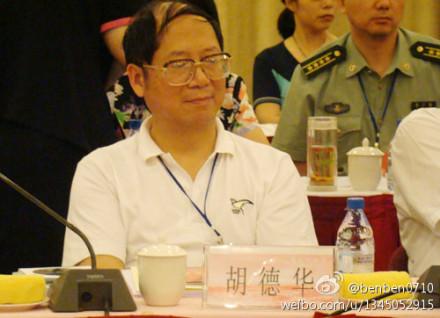In a rare display of direct criticism toward the Chinese Communist leadership, Hu Dehua, the son of former Party leader Hu Yaobang, lambasted Xi Jinping for his hardline position, taking to task the new leader’s remarks that were given earlier this year.
Hu’s father was the Party leader from 1982 to 1987. He tried to implement economic and political reform during his rule, but was forced to resign when student protests escalated around the country in the late 1980s. His death in April 1989 was mourned by many students and gave rise to the Tiananmen Square democracy protests that were later brutally suppressed.
On June 17, Chinese dissident Chen Ziming posted to Sina Weibo, a Twitter-like microblogging platform, a speech given by Hu at a gathering for the liberal and pro-reform magazine, “Yanhuang Chunqiu,” on April 13. By the next day, the snippet was re-posted more than 7,000 times and read by over 4 million people, according to German broadcaster Deutsche Welle, where Chen is a regular columnist on Chinese affairs. At the time of writing, the post has already been censored.
Hu was blunt with his criticisms of Xi’s hardline rhetoric, beginning with Xi’s speech given to Party cadres during his southern tour in January. Xi had explained that the Party must have “unwavering leadership of the army,” using the collapse of the Communist Party of the Soviet Union as an example of what happens when the regime fails to take control of the army and “the tools of dictatorship.” When the Soviet Union was disintegrating, “no real men came out to fight,” Xi had said.
Hu questioned Xi’s definition of a “real man.” “Are the Soviet soldiers who held on to modern weapons, driving third-generation battlefield tanks toward defenseless people, opening fire at them, and charging around violently, are they ‘real men’?”
He continued to say that there are only two ways a ruling party can deal with a crisis, marking his disapproval of the first option: “We could insist on suppression, not letting people speak or discuss, not allowing different opinions, especially pointed opinions. Taking it one step further, it means no matter who is opposing me, I will drive a tank over them, this is one way. Another way is to comply with the people’s will, tell the truth to people, and ask for the popular masses to understand.”
Hu countered that the reason for the Soviet Union’s collapse was instead because of “the Party’s monopoly over political rights, over the economy and all the resources, over the truth.” Now, Russia has universal suffrage elections, where “the legitimacy of rule comes from the people’s authorization, and not guns, cannons, and bayonets.”
Hu also cited the Nationalist Party in Taiwan as a successful example of winning the people’s approval through reform and popular elections, according to a report by the Singapore-based The Straits Times.
Hu then took apart Xi’s “two undeniables” concept, which Xi explained in a speech to high officials on Jan. 5. Xi had said, “One must not use the historical period after ‘reform and opening up’ to deny the historical period before ‘reform and opening up,’” referring to the economic reform policies enacted under Party leader Deng Xiaoping.
Hu questioned if Xi’s theory means the Cultural Revolution, the persecution of intellectuals in the Anti-Rightist campaign, and Mao Zedong’s purges of senior officials should be upheld. “Does it mean we cannot deny Mao saying that Xi’s father, Xi Zhongxun, used novels to conduct anti-CCP activities?” Xi’s father was accused of supporting a novel that criticized Mao and was purged from the Party in 1962. He was also persecuted during the Cultural Revolution, before being rehabilitated in 1978.
Chen Ziming told Deutsche Welle that Hu’s remarks are a “model text” suggesting that there is a divergence of opinion among princelings over the direction the Party should take. Some like Hu are supportive of true political reform, while others, like the former Chongqing Party chief Bo Xilai, are known for implementing Maoist-era campaigns in his city.





